Nearly 320 foreign pharmaceutical products, vaccines and medical biological products have just had their circulation registrations renewed and renewed in Vietnam for a period of 3 to 5 years by the Drug Administration of Vietnam.
Medical news on December 11: New issuance and extension of circulation registration for more than 300 types of drugs
Nearly 320 foreign pharmaceutical products, vaccines and medical biological products have just had their circulation registrations renewed and renewed in Vietnam for a period of 3 to 5 years by the Drug Administration of Vietnam.
New issuance and renewal of circulation registration for more than 300 types of drugs
According to information from the Drug Administration, of these, about two-thirds of the products are foreign medicines, vaccines, and medical biological products with newly granted circulation registration certificates; the rest are products with extended circulation registration certificates.
Specifically, 171 foreign drugs have been newly granted circulation registration certificates in Vietnam, of which 164 drugs have been newly granted circulation registration certificates for 5 years, and 7 drugs have been granted registration certificates for 3 years.
71 foreign drugs, of which 37 were newly granted circulation registration certificates for 5 years, 3 drugs were granted registration certificates for 3 years, and the rest were renewed for 5 or 3 years. 69 vaccines and medical biological products had their circulation registration certificates renewed for a period of 3 to 5 years.
The Drug Administration of Vietnam requires drug, vaccine, and biological product manufacturing and registration establishments to fully perform the following obligations:
Produce and supply drugs in accordance with the registered records with the Ministry of Health , and must print or affix the registration number on the drug label.
Comply with Vietnamese laws and regulations of the Ministry of Health related to the production, import, and circulation of drugs in Vietnam. In case of changes in the drug circulation process in Vietnam and the host country, the facilities must immediately notify the Drug Administration.
Update drug quality standards according to regulations in current circulars of the Ministry of Health, such as Circular No. 11/2018/TT-BYT, Circular No. 03/2020/TT-BYT, and Circular No. 08/2022/TT-BYT.
Update drug labels and drug instructions according to Circular 01/2018/TT-BYT and Circular 08/2022/TT-BYT if there are any changes.
Maintain the operating conditions of the registration facility throughout the validity period of the circulation registration certificate. If the operating conditions are no longer met, the facility must change the registration facility within 30 days.
In addition, drug registration establishments are also responsible for reporting on compliance with Good Manufacturing Practices (GMP) for drug and drug ingredient manufacturing establishments. If a manufacturing facility has its manufacturing license revoked or fails to meet GMP standards in the home country, the facility must notify the Drug Administration within 15 days.
The Drug Administration also requires drug registration facilities to coordinate with treatment facilities to properly implement regulations on prescription drugs, monitor the safety, effectiveness and unwanted effects of drugs on Vietnamese people, and synthesize reports according to regulations of the Ministry of Health.
Previously, two weeks ago, the Drug Administration issued decisions to grant new licenses and extend the licenses of nearly 500 drugs and drug ingredients produced domestically and abroad, including drugs with proven bioequivalence.
Lowest birth rate in history, Vietnam's population faces many challenges
At the National Action Month on Population event, Deputy Minister of Health Tran Van Thuan said that Vietnam's population work is currently facing many difficulties and challenges. Many practical population issues have arisen and are directly affecting social life and sustainable development of Vietnam in the present and future.
One of the major challenges is that maintaining a stable replacement level of fertility nationwide is not really sustainable. The fertility trend is showing signs of decline (in 2023 it is estimated to be 1.96 children/woman, the lowest in history and is forecast to continue to decrease in the coming years).
The rate of increase in the sex ratio at birth has been controlled, but remains high and shows no signs of decreasing (in 2023 it will be 112 boys/100 girls).
The population is aging rapidly and will soon pass the golden population period; child marriage, pregnancy and childbirth among minors, stature, physical strength and quality of life need to be improved further.
Meanwhile, the organization of population work is not stable and lacks unity among provinces and cities. Investment resources for population work are not commensurate with the requirements and assigned tasks.
Deputy Minister of Health Tran Van Thuan emphasized that in the period of 2025 and the following years, population work will continue to face many difficulties and challenges, and many targets are at risk of being difficult to achieve.
To carry out the assigned requirements, tasks and planning targets, the Ministry of Health calls on the staff, civil servants and public employees working in population work to continue to unite, be active, proactive and creative in advising Party committees and authorities at all levels; coordinate and mobilize people to effectively implement population policies and guidelines.
Deputy Director in charge of Hanoi Department of Health Nguyen Dinh Hung said that in recent years, Hanoi has effectively implemented many models to improve population quality, receiving enthusiastic response from the people. Some typical models include: model of health care for the elderly in the community, model of pre-marital health consultation and examination, model of reproductive health care for adolescents and youth, etc.
In 2024, Hanoi will continue to maintain a stable replacement fertility rate and a stable population size. The sex ratio at birth will gradually decrease every year. The quality of the population will be significantly improved.
Hanoi's population is currently approximately 8.7 million people, with an average life expectancy of 76.3 years. The rate of elderly people receiving regular health check-ups is 88%. The rate of young people receiving pre-marital health check-ups is 65%. In particular, Hanoi also focuses on implementing activities to screen, diagnose, and treat a number of prenatal and neonatal diseases in the area, with a prenatal screening rate of 85% and a newborn screening rate of 89%.
The Deputy Director in charge of the Hanoi Department of Health emphasized that population in the era of a nation's growth plays a decisive role in the strength for development.
To make population work in Hanoi effective, creating clear, quality and stable changes, in the coming time, Hanoi will continue to focus on implementing 5 key tasks well. In particular, the city focuses on programs and plans to improve population quality.
Along with that, Hanoi will control the birth rate, firmly maintain the replacement birth rate, contribute to the rapid and sustainable development of the capital, and at the same time improve health services.
Message of National Action Month on population, including high-quality population, driving force for Vietnam's development.
Pre-marital health check-up, preparing for the golden generation. Maintaining a reasonable birth rate, balancing the population, and ensuring a sustainable future. Having two children, parents are wise and children are grateful. Gender equality, the foundation for controlling the sex ratio at birth.
Staphylococcus aureus infection from minor wounds
A small itchy spot suddenly spread, became red, swollen and extremely painful, forcing a 44-year-old woman in Hanoi to have her finger amputated and suffer many after-effects.
The Central Hospital for Tropical Diseases has just announced that it has received and treated a patient infected with Staphylococcus aureus.
Previously, Ms. TTY (44 years old, Hanoi) discovered a small itchy spot on her left hand. However, this itchy spot quickly spread, causing severe swelling and pain. When the infection spread throughout her hand, Ms. Y went to the Central Hospital for Tropical Diseases for examination and was admitted to the Orthopedic and Spinal Neurology Department.
Here, doctors determined that part of the skin on her hand and little finger had become necrotic, forcing her to amputate the finger. Ms. Y. was diagnosed with hand cellulitis caused by Staphylococcus aureus - a type of bacteria that causes serious skin infections.
To treat the patient, the doctors coordinated surgery to clean the infection and control blood sugar. Ms. Y had to undergo two necrosis debridement surgeries to remove dead tissue and install a negative pressure suction system to promote tissue regeneration. When the wound was clean and the granulation tissue developed well, the doctors performed flap surgery to cover the defect and graft thick skin.
The treatment lasted more than a month and included surgery, post-operative care and physical therapy to restore motor function of the hand and fingers.
According to Dr. Hoang Manh Ha, Head of the Department of Orthopedics and Spinal Neurology, the patient had a history of type 2 diabetes and intellectual disability, but did not control his blood sugar well and did not have regular check-ups. Therefore, on the basis of diabetes, the infection spread rapidly and became serious.
Dr. Ha said that the treatment of cellulitis in this case is very complicated, requiring the coordination of many specialties. Currently, the patient still faces many complications and long-term consequences. The mobility of the hand is reduced, the patient cannot grasp or fully extend the fingers. The feeling in the hand is also reduced, especially in the grafted skin area.
"Cellulitis is a dangerous disease, especially for people with underlying diseases such as diabetes. To prevent it, patients need to control underlying diseases well, have regular health check-ups and pay attention to skin lesions. If you detect signs of swelling, pain or widespread inflammation, you need to go to a medical facility immediately for timely diagnosis and treatment," Dr. Hoang Manh Ha advised.
Source: https://baodautu.vn/tin-moi-y-te-ngay-1112-cap-moi-gia-han-dang-ky-luu-hanh-hon-300-loai-thuoc-d232173.html





![[Photo] Prime Minister Pham Minh Chinh receives President of Cuba's Latin American News Agency](/_next/image?url=https%3A%2F%2Fvphoto.vietnam.vn%2Fthumb%2F1200x675%2Fvietnam%2Fresource%2FIMAGE%2F2025%2F12%2F01%2F1764569497815_dsc-2890-jpg.webp&w=3840&q=75)

![[Photo] President Luong Cuong holds talks with Sultan of Brunei Darussalam Haji Hassanal Bolkiah](/_next/image?url=https%3A%2F%2Fvphoto.vietnam.vn%2Fthumb%2F1200x675%2Fvietnam%2Fresource%2FIMAGE%2F2025%2F12%2F01%2F1764567099556_ndo_br_1-jpg.webp&w=3840&q=75)
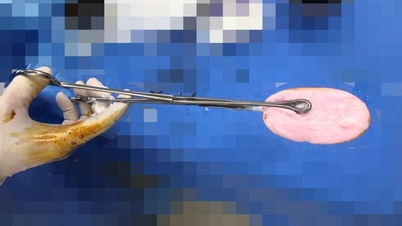

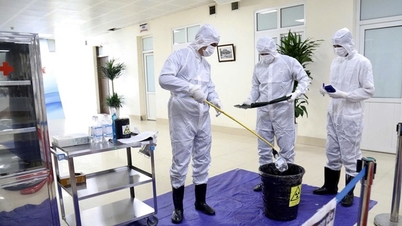

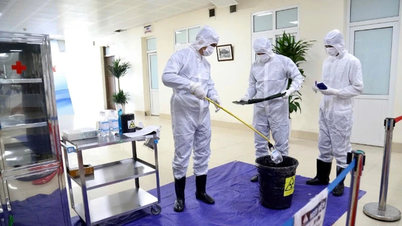


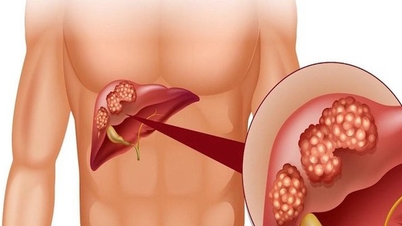






































































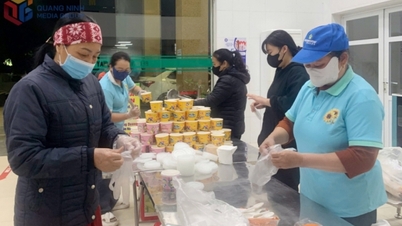

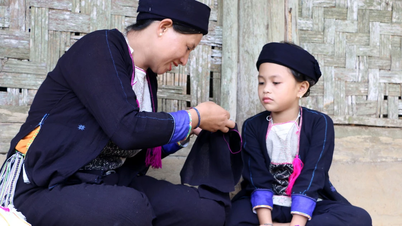

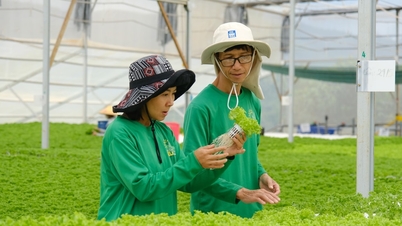











Comment (0)